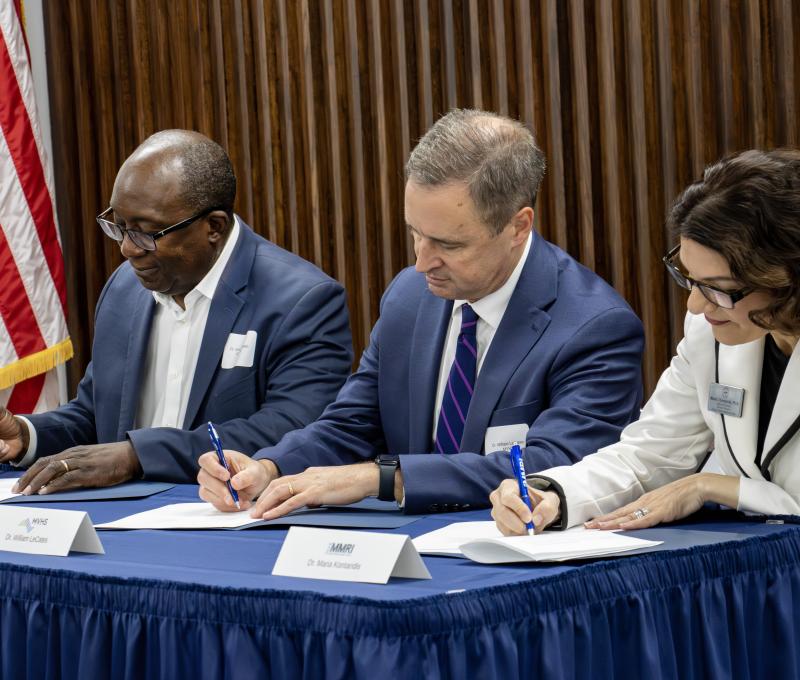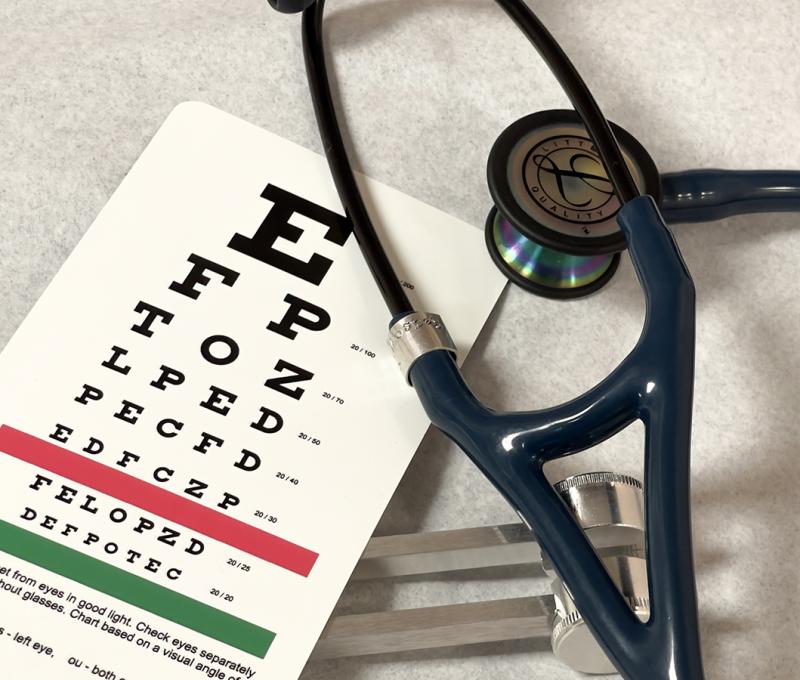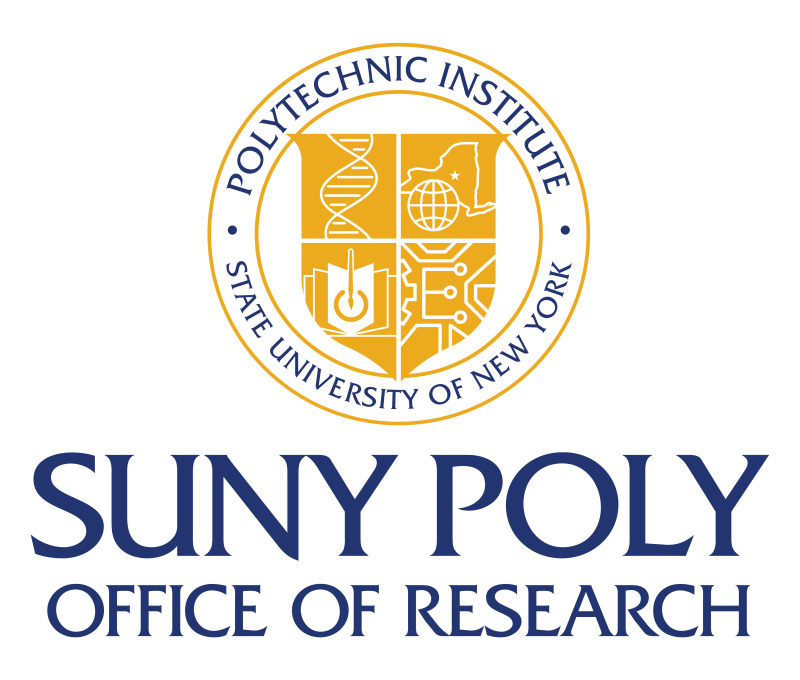News Release: National Science Foundation Awards SUNY Poly Research Team $500,000 for Development of Biocompatible Electronic and Photonic Devices

For Release: Immediate – September 28, 2021
Contact: Steve Ference, Director of University Communications | (518) 429-7742 | sference@sunypoly.edu
Grant Leverages the Northeast Advanced Technological Education Center (NEATEC) and Supports Collaboration with the Albany College of Pharmacy and Health Sciences, the Neural Stem Cell Institute, and Additional Partners
ALBANY, NY – SUNY Polytechnic Institute (SUNY Poly) announced today that a team of professors is receiving $500,000 in new funding from the National Science Foundation (NSF) to facilitate development of new manufacturing methods to enable next-generation bioelectrical and biophotonic devices that can interface with living tissues. This could help enable information, such as brain electrical signals or muscle stimulation, to be transferred between such devices and the living system to improve quality of life.
Led by Professor of Nanobioscience Dr. Susan Sharfstein with Professor of Nanoscale Science Dr. Robert Geer; Empire Innovation Professor of Nanobioscience Dr. Nate Cady, and Professor of Nanobioscience Dr. Yubing Xie, as well as Development Integration Engineer Dr. Nicholas Fahrenkopf, the award will also lead to a series of related workshops with a wide range of academic and industrial partners to identify additional research and manufacturing issues that can be further addressed, with guidance from an industrial advisory board. Additional partners include the Albany College of Pharmacy and Health Sciences (ACPHS), the National Center for the Biotechnology Workforce, AIM Photonics, Forsyth Technical Community College, and the Neural Stem Cell Institute.
The effort will support two students at SUNY Poly who are pursuing their doctoral degrees, in addition to providing internships and other hands-on learning opportunities for students. A detailed curriculum will also be developed and piloted at SUNY Poly, partnering community colleges, and the ACPHS to encourage a robust high-tech biocompatible device manufacturing workforce pipeline.
“I am proud to congratulate Drs. Sharfstein, Geer, Cady, Xie, and Fahrenkopf for this exciting NSF award which not only acts as a testament to SUNY Poly’s unique capabilities and expertise, but also enables students to gain first-hand knowledge of this burgeoning field of research,” said Interim Dean of SUNY Poly’s College of Nanoscale Science and Engineering Dr. André Melendez. “This research has the potential to lay the groundwork toward biomanufacturing at SUNY Poly, and we are thrilled that, with our partners, we can further cement this region and New York State as a hub for game-changing innovations that can improve lives.”
This future manufacturing seed grant will focus on design and manufacturing of silicon-wafer (the platform upon which computer chips are developed) electronic and photonic devices with the goal of interfacing them with biological materials. The researchers will also identify the barriers to addressing these challenges at the manufacturing scale as the teams work toward the implementation of a pressure sensing device that can measure outflow from ocular (eye) tissues to address development of glaucoma therapeutics. In addition, arrays with three-dimensional cell cultures for electrical stimulation and observation will be created. These testbed experiments will focus on design for manufacturability to foster the eventual transition of these concepts out of the laboratory.
“I am thankful the NSF selected our collaborative research team and our partners to develop new manufacturing methods for the creation of biohybrid devices that can build on the positive impacts from earlier efforts in this critical field, such as deep brain stimulation to improve the symptoms of Parkinson’s disease,” said Professor Sharfstein. “We look forward to catalyzing the research, development, and production of next-generation biocompatible devices to enable similarly meaningful outcomes,” said Professor Sharfstein.
Dr. Robert Geer said, “The potential educational and workforce development-centered opportunities present numerous ways to engage students and others in this growing area of research and development, and we look forward to drawing on the knowledge and experience of NEATEC’s workforce development team, building from our previously NSF-funded Advanced Technical Education Center.”
“I want to congratulate Dr. Susan Sharfstein and the SUNY Poly team for this significant award. Dr. Sharfstein is a nationally recognized scientist and a member of the advisory group for our center, the Stack Family Center for Biopharmaceutical Education and Training (CBET) at Albany College of Pharmacy and Health Sciences. We are already collaborating with Dr. Sharfstein on her efforts to produce a bioengineered blood thinner, and look forward to more collaborations,” said Dr. Kamal Rashid, Founding Director of CBET, a state-of-the-art bioprocessing facility built to educate and train the next-generation workforce for the bio-based industry both regionally and nationally.
“Characterization of modern biological products requires new and highly-capable platforms. We're excited to participate in this effort, centered in the Capital Region, to create innovative, high-throughput, biohybrid devices. Training the workforce in these cutting-edge processes is critical to ensure we are at the forefront of advanced manufacturing,” said Dr. Sally Temple, Scientific Director, Principal Investigator, and Co-Founder of the Neural Stem Cell Institute, Rensselaer NY.
This grant also stems from research conducted under the Matching Investment Program (MIP) by the New York State Center for Advanced Technology in Nanomaterials and Nanoelectronics (CATN2), announced in May 2020. Led by Dr. Yubing Xie, it seeks to address the emerging need for non-clinical human-based gene screening platforms from federal agencies and the pharmaceutical industry, expanding an established 3D human cell-based model to a gene-screening platform that allows for the identification of target genes for gene therapy. More about this collaborative research with Glauconix Biosciences, a SUNY Poly alumni-led spinoff, can be found in the MIP news release.
####################
About SUNY Polytechnic Institute (SUNY Poly)
SUNY Poly is New York’s globally recognized, high-tech educational ecosystem. SUNY Poly offers undergraduate and graduate degrees in the emerging disciplines of nanoscience and nanoengineering, as well as cutting-edge nanobioscience programs at its Albany campus, and undergraduate and graduate degrees in technology, including engineering, cybersecurity, computer science, and the engineering technologies; professional studies, including business, communication, and nursing; and arts and sciences, including natural sciences, mathematics, humanities, and social sciences at its Utica campus; thriving athletic, recreational, and cultural programs, events, and activities complement the campus experience. As the world’s most advanced, university-driven research enterprise, SUNY Poly boasts billions of dollars in high-tech investments and hundreds of corporate partners since its inception. For information visit www.sunypoly.edu.








